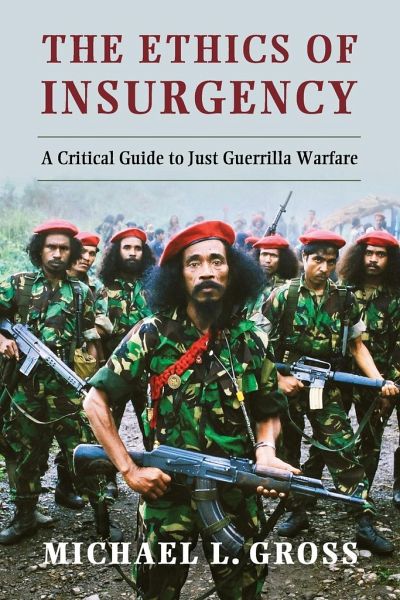
The Ethics of Insurgency
Versandkostenfrei!
Versandfertig in 1-2 Wochen
39,99 €
inkl. MwSt.
Weitere Ausgaben:

PAYBACK Punkte
20 °P sammeln!
As insurgencies rage, a burning question remains: how should insurgents fight technologically superior state armies? Commentators rarely ask this question because the catchphrase 'we fight by the rules, but they don't' is nearly axiomatic. But truly, are all forms of guerrilla warfare equally reprehensible? Can we think cogently about just guerrilla warfare? May guerrilla tactics such as laying improvised explosive devices (IEDs), assassinating informers, using human shields, seizing prisoners of war, conducting cyber strikes against civilians, manipulating the media, looting resources, or usi...
As insurgencies rage, a burning question remains: how should insurgents fight technologically superior state armies? Commentators rarely ask this question because the catchphrase 'we fight by the rules, but they don't' is nearly axiomatic. But truly, are all forms of guerrilla warfare equally reprehensible? Can we think cogently about just guerrilla warfare? May guerrilla tactics such as laying improvised explosive devices (IEDs), assassinating informers, using human shields, seizing prisoners of war, conducting cyber strikes against civilians, manipulating the media, looting resources, or using nonviolence to provoke violence prove acceptable under the changing norms of contemporary warfare? The short answer is 'yes', but modern guerrilla warfare requires a great deal of qualification, explanation, and argumentation before it joins the repertoire of acceptable military behavior. Not all insurgents fight justly, but guerrilla tactics and strategies are also not always the heinous practices that state powers often portray them to be.














